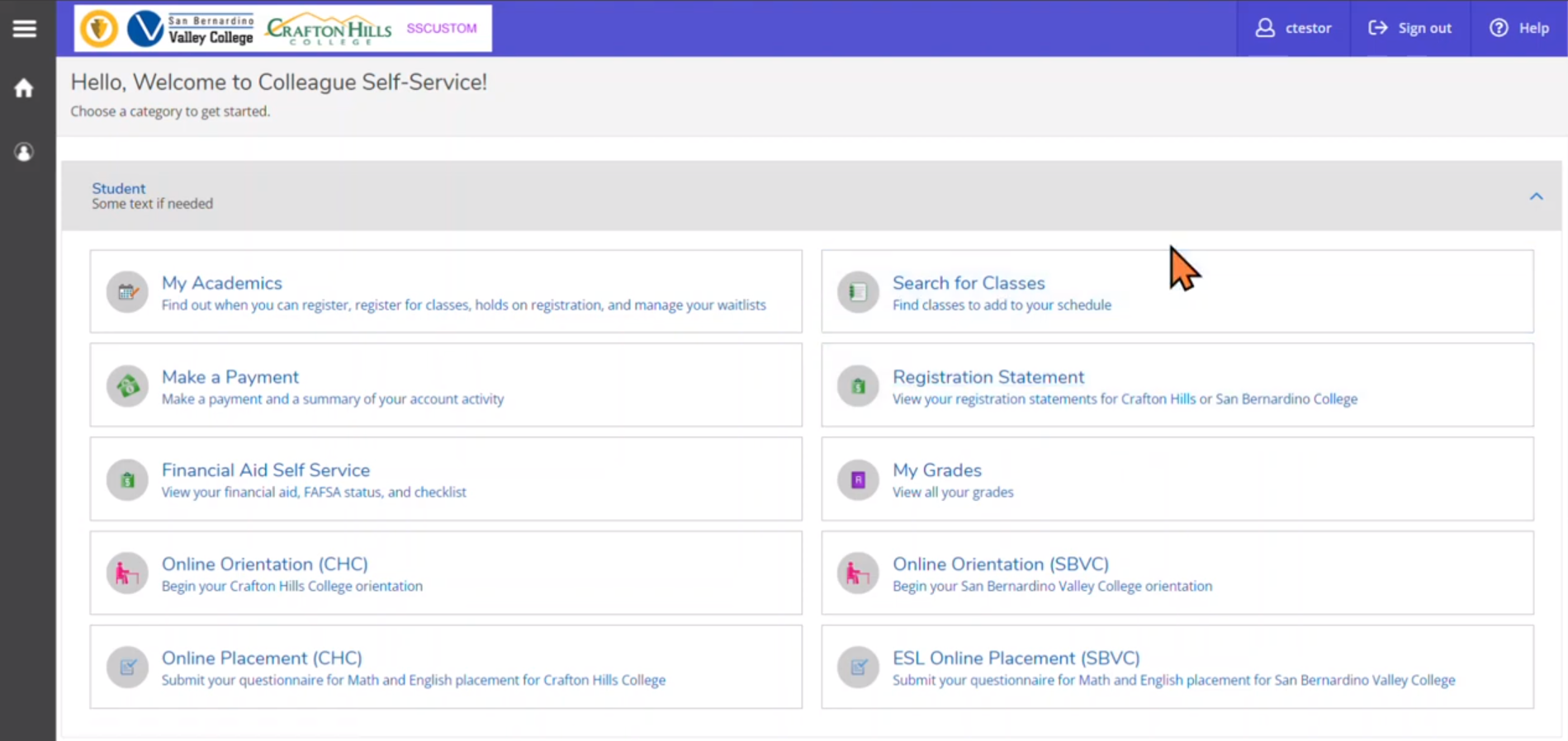Faculty Ethics Statement
Crafton Hills College Faculty Ethics Statement
This ethics statement is a set of principles that faculty members should uphold to enhance the college experience for all students. It's important to note that these principles transcend the contractual and legal obligations of faculty and focus on how faculty should conduct themselves to create an environment conducive to learning. This statement will be reviewed and approved by CHC AS yearly.
Fulfilling Instructional Responsibilities
Course assignments and content should align with the instructional level of the course.
Clear criteria for student success in the course should be used. Faculty should proactively
explore and adopt teaching methodologies that accommodate diverse learning styles
and backgrounds and ensure that feedback (e.g. grading) is timely and focuses on guiding
student progress and improving the learning experience.
Creating a Secure Learning Environment
Faculty members hold the responsibility of fostering a safe and nurturing atmosphere
for all students. By strictly adhering to college policies and taking proactive measures,
faculty contribute to an environment where students can focus on their academic growth
without concerns for their well-being. This commitment extends to ensuring physical
and emotional safety, fostering mutual respect, and promptly addressing any safety-related
issues that may arise, including any prejudicial language or behavior against any
race, sexual orientation, gender identification, sex, disability, or religion. In
doing so, faculty members contribute to a sense of security that supports the holistic
development of every student.
Equitable Treatment and Support for Students with Disabilities
Faculty members should actively support students with disabilities: communicating
openly with students and the SAS office about their individual needs and preferences
of the student, allowing for a collaborative approach to accommodation, and fostering
a sense of trust and respect that focuses on listening to the needs of the student.
Responsible Use of Authority
Faculty must be aware and responsible with the power differential as part of their
work and act professionally in that capacity. Faculty members must refrain from leveraging
their positions to exert influence or cause harm to students for personal reasons.
This includes not engaging in romantic or sexual relationships with students under
their academic responsibility.
Professionalism in Evaluation
Faculty members should give due importance to the peer evaluation process. Evaluation
emphasis should be placed on assessing the peer's professional competence and student
support and engagement, while also providing constructive feedback and guidance. This
approach ensures a meaningful and growth-oriented evaluation process that contributes
to a fair and thriving academic community.
Accurate Representation
Faculty members must delineate their personal viewpoints from the academic knowledge
they impart and cultivate an environment of intellectual integrity, where students
are encouraged to form their own informed opinions while receiving an accurate and
unbiased education. When expressing opinions or affiliations in public statements,
faculty should be meticulous in distinguishing between their personal stance and the
official positions of the college. Any use of institutional affiliation should be
solely for the purpose of identification, rather than implying an endorsement of personal
views.
Dismantling Barriers for Student Success and Well-being
A fundamental responsibility of faculty members is to prioritize inclusivity and respect
by actively identifying and dismantling obstacles that impede student success, safety,
access, and overall well-being, including any policies or practices within the institution
and its culture. Faculty members should adopt a proactive stance in their instructional
space and in campus governance, advocating for necessary changes in policies, procedures,
and practices that perpetuate inequality or hinder progress.
Collegiality
As essential contributors to the academic community, faculty members play a pivotal
role in fostering a collegial environment marked by interactions with peers that are
characterized by mutual respect, open communication, and a commitment to shared goals.
Faculty members should approach collaborations and discussions with a dedication to
excellence, promoting an atmosphere where the exchange of ideas is constructive and
fosters a sense of community and solidarity within the academic setting. Faculty members
should be mindful of ethical guidelines and principles, ensuring that their actions
contribute to a climate of trust and accountability. This includes respecting the
intellectual property of others, acknowledging diverse perspectives, and addressing
conflicts in a constructive and respectful manner.
Engagement in Governance
Faculty have responsibilities that derive from common membership in the institution.
This includes active involvement in the governance process, including campus-wide
discussions, committees, and other decision-making bodies that collectively shape
the academic and administrative direction of the institution. Moreover, faculty have
the obligation to give due regard to their roles and responsibilities. In other words,
their participation in governance extends beyond mere presence; faculty are expected
to consider their colleagues’ time and labor and make every reasonable effort to contribute
to the workload. Faculty members must also champion an ethos of inclusivity and transparency,
fostering an environment where collaborative decision-making is not only valued but
actively promoted and practiced.
Rev. 10/23
